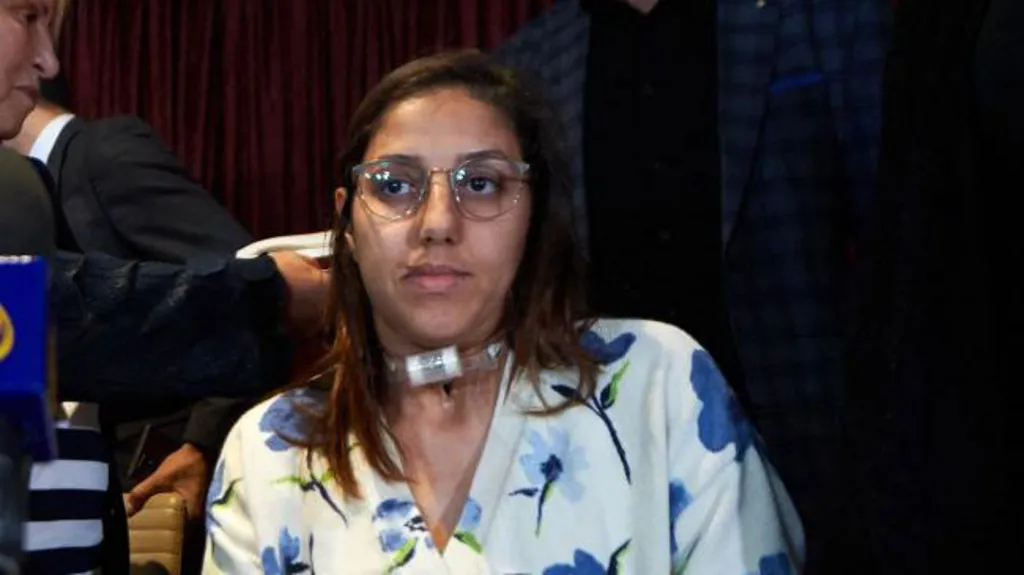THIS year’s winner of France’s biggest book prize is being sued in Algeria over claims he stole the story from a patient of his psychiatrist wife.
Kamel Daoud was awarded the Goncourt prize earlier this month for his novel Houris, a searing account of Algeria’s 1990s civil war in which up to 200,000 people were killed.
But a woman who survived one of the massacres has appeared on Algerian television, alleging that the book’s heroine – named Fajr – is based on her own personal story.
As a girl, Saada Arbane had her throat cut in an Islamist militant attack that wiped out most of her family, and now communicates through a speaking tube. In the book, Fajr has suffered the same fate.
Ms Arbane said that from 2015 she had several psychiatric sessions with Daoud’s future wife, Aicha Dahdouh, and she accused the couple of using her story without her consent.
She said that many details in the heroine’s life – “her speaking tube, her scars, her tattoos, her hairdresser” – came directly from what she told Ms Dahdouh. Likewise, she said, Fajr’s relationship with her mother and her desire for an abortion.
Ms Arbane alleged she answered an invitation to meet Daoud three years ago, but refused when he asked if he could use her story as the basis for his book.
“It’s my life. It’s my past. He had no right to chuck me out like that,“ she told Algeria One TV.
Two lawsuits have been filed in Algeria against Daoud and his wife.
One cites rules on medical confidentiality. The second cites a law enacted after the end of the civil war which makes it a crime to “instrumentalise the wounds of the national tragedy”.
This “reconciliation” law greatly restricts the right to publish or speak publicly on the civil war, and is the reason why Daoud’s book has been proscribed in his home country and why his French publisher Gallimard was banned from the recent Algiers book fair.







